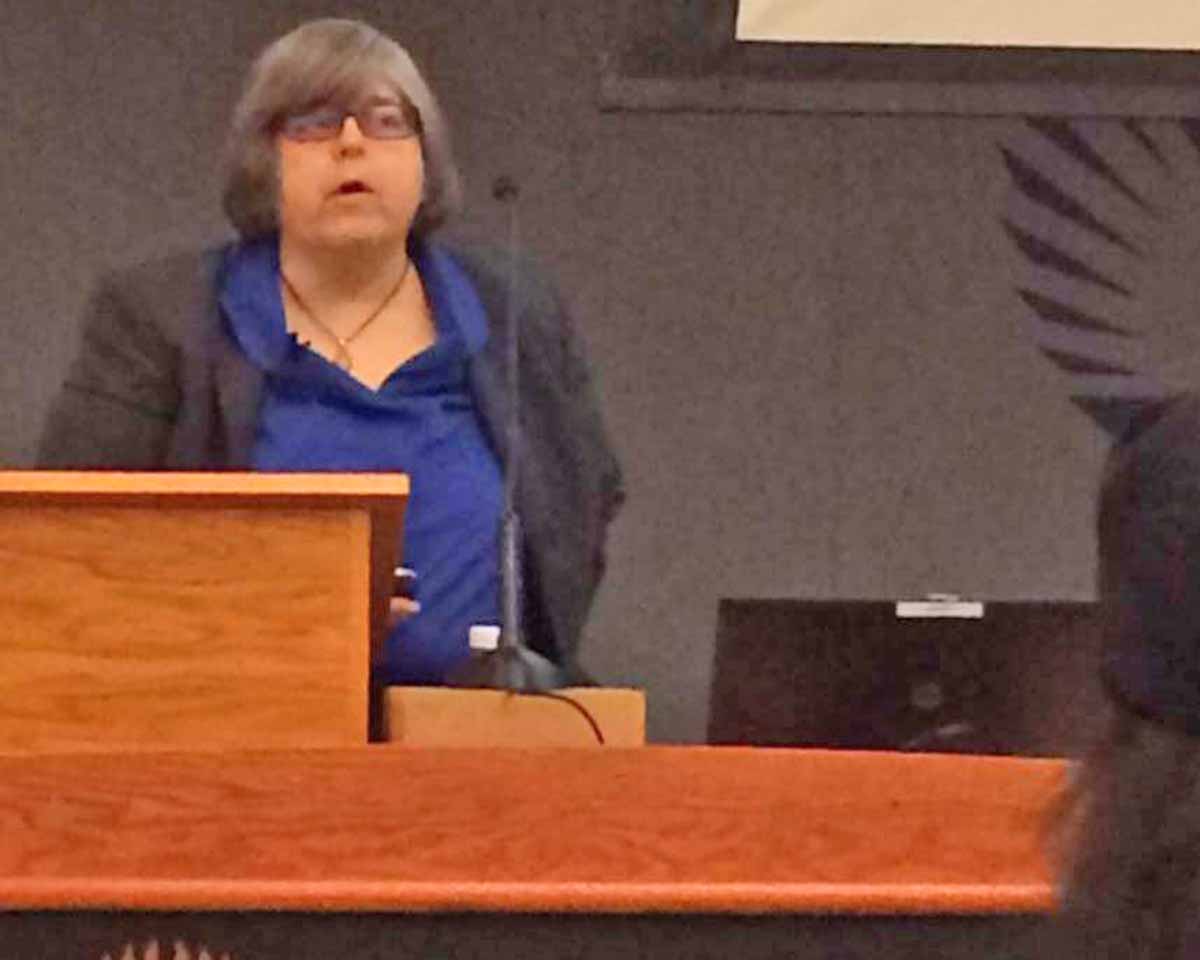In a full-circle moment, Wayne State University labor historian Elizabeth Faue is being recognized for her work in the field of labor and working-class history by an organization she helped to establish.
The Distinguished Service Award from the Labor and Working Class History Association (LAWCHA) is given periodically to individuals who have made a distinctive contribution to the field. Faue, a professor and chair of the Department of History, certainly fits the bill — although, according to her, the nomination was a complete surprise.
“The nomination came out of nowhere,” she said. “You work for a while in your career, doing things without considering your impact. It’s really special for me, this award. The people who’ve nominated me are some I’ve known a long time, and they’re people I respect.”
A Warrior since 1990, Faue’s talents, passions and influences have spanned the university — from serving as interim associate dean of the Graduate School and director of graduate studies in History to heading a career diversity initiative in the College of Arts and Liberal Sciences.

In the field of labor and working-class history, Liz Faue is not an unknown name. Labor historian by day and Italian-language aficionado by night, she is passionate about history, culture and learning. In particular, she’s interested in the stories of those who have not historically told their own story or get written about — working-class women and men.
“In a field like labor history, which is about working people who, for the most part, don’t leave memoirs or write books, there is a wider responsibility to one’s subject as well as one’s audience,” explained Faue. “In my career, I think I’ve been able to make an impact, even if some of those points of impact were small or discreet.”
Of large impact has been Faue’s first book, Community of Suffering and Struggle: Women, Men and the Labor Movement in Minneapolis, 1915–1945, which is still in print and cited today. “To write that as a relatively young person [in her 20s], to figure those things out and learn my work has been influential among scholars is special. The things I’ve done since all have had meaning but probably not as much as that first book,” reflected Faue.
In total, Faue has written three books and published more than 50 articles, chapters and review essays. With a bachelor’s, master’s and Ph.D., she’s been a lifelong learner, an educator for more than 30 years and a leader in labor history for just as long — if not longer. Her contributions to the field, many of which she’s very modest about, simply cannot be contained. Her in-depth examinations of gender and labor politics, trade union history, and working-class life have arguably rewritten history.
She’s driven by questions — finding the answers to them and sharing those answers as a means to better understand and educate. “There aren’t a lot of monuments to workers,” said Faue, who sees her third and most recent book, and everything in between, as an affirmation of her first. “Rethinking the American Labor Movement uses some of the insights I had gotten from the first book, about how we integrate women into labor history, the dual character of the labor movement, being both a social movement and an institution. Those ideas, then and now, were being applied to a bigger narrative of labor throughout the 19th and 20th centuries.”
It's the ideas that have captured Faue from the beginning. “I was going to be a women’s historian primarily,” she admitted. “But then I had the question, ‘How do women fare in social movements based on class?’ It was through the door of social movement studies that I became a labor historian. I didn’t plan on being a labor historian. I’m just interested. I’m a very curious person.”
When Faue belonged to the faculty union, she was a third-generation unionist. Now, as an administrator, Faue takes great pride in not only the nod to her family that her area of expertise provides, but the education, mentorship and partnership her role allows her to have. “I’ve cared very much, from the very beginning at Wayne State, for my students,” said Faue. “Those students have really made my life here. Undergraduates, graduate students, alumni, trying to make their lives better, finding more funding, advancing their professional development and improving their practices have all been some of my best service work.”
With responsibilities and passions in teaching, service and research, Faue has been able to seamlessly merge her interests, talents and expertise. She’s an activist, an educator, a trailblazer and an inspiration.
And LAWCHA has been an important part of Faue’s personal story, dating back to 1997, when she served as co-interim coordinator, making the oganization’s recognition of her career all the more meaningful. “We put our careers together brick by brick and never think about the wider consequences and the meaning. So, for someone to come along and say, ‘Well, this is what’s going on, this is the map and the plan,’ I was genuinely touched by that,” Faue said about the LAWCHA award announcement that Shelton Stromquist, a good friend, wrote about her.
By Katheryn Kutil
